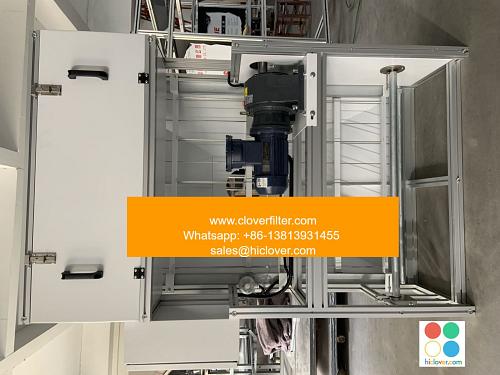Filtering the Facts: Separating Myths from Reality in Air Filtration

As the world grapples with the challenges of indoor air quality, air pollution, and respiratory health, the importance of air filtration cannot be overstated. However, with the numerous options available in the market, it can be daunting to separate myths from reality. In this article, we will delve into the world of air filtration systems, HEPA filters, activated carbon filters, and other air purification technologies to provide a clearer understanding of their efficacy, application areas, and limitations.
Understanding the Basics of Air Filtration
Air filtration is a complex process that involves the removal of particulate matter, gases, and microorganisms from the air. The goal of air filtration is to improve indoor air quality by reducing the concentration of pollutants and allergens that can exacerbate respiratory problems such as asthma and allergic rhinitis. There are several types of air filters available, including MEVs (Mechanical Ventilation with Heat Recovery), UV air purifiers, and ionizers, each with its own set of advantages and disadvantages.
Debunking Common Myths in Air Filtration
One of the most common myths in air filtration is that all HEPA filters are created equal. While HEPA filters are highly effective in removing particulate matter as small as 0.3 microns, not all HEPA filters are designed to capture gases and odors. Another myth is that air purification systems can completely eliminate allergens and pollutants from the air. While air filtration systems can significantly reduce the concentration of pollutants, they are not a substitute for proper ventilation and housekeeping.
Application Areas of Air Filtration
Air filtration has a wide range of application areas, including residential, commercial, and industrial settings. In residential settings, air filtration can be used to improve indoor air quality and reduce the risk of respiratory problems. In commercial settings, air filtration can be used to improve productivity and reduce the risk of absenteeism due to air pollution. In industrial settings, air filtration can be used to remove hazardous particles and gases from the air, improving worker safety and reducing the risk of occupational diseases.
Highlighting the Importance of Air Filtration in Various Industries
The importance of air filtration cannot be overstated in various industries, including healthcare, pharmaceuticals, and food processing. In healthcare settings, air filtration is critical in preventing the spread of infectious diseases and improving patient outcomes. In pharmaceutical settings, air filtration is essential in maintaining a sterile environment and preventing contamination. In food processing settings, air filtration is crucial in preventing food spoilage and improving food safety.
In conclusion, air filtration is a complex process that requires a thorough understanding of the myths and realities surrounding air purification technologies. By separating the facts from the fiction, we can make informed decisions about the type of air filtration system that is best suited for our needs, whether it is for residential, commercial, or industrial settings. As we continue to navigate the challenges of indoor air quality and air pollution, it is essential that we prioritize air filtration as a critical component of our health and wellness strategy. You haven’t provided a prompt or question for me to respond to. Please go ahead and ask your question, and I’ll do my best to provide a helpful and direct answer.

